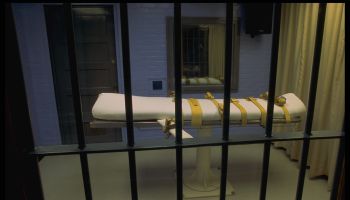NEW YORK (AP) — The Susan G. Komen for the Cure breast-cancer charity on Friday abandoned plans to eliminate grants to Planned Parenthood. The startling decision came after three days of virulent criticism that resounded across the Internet, jeopardizing Komen’s iconic image.
SEE ALSO: Questions With Common
“We want to apologize to the American public for recent decisions that cast doubt upon our commitment to our mission of saving women’s lives,” a Komen statement said.
As first reported by The Associated Press on Tuesday, Komen had adopted criteria excluding Planned Parenthood from future grants for breast-cancer screenings because it was under government investigation, citing a probe launched by a Florida congressman at the urging of anti-abortion groups.
Komen said it would change the criteria “to make clear that disqualifying investigations must be criminal and conclusive in nature and not political.”
“We will continue to fund existing grants, including those of Planned Parenthood, and preserve their eligibility to apply for future grants,” the statement said.
Many of Komen’s affiliates across the country had openly rebelled against the decision to cut the funding, which totaled $680,000 in 2011. One affiliate, in Aspen, Colo., had announced Thursday that it would defy the new rules and continue grants to its local Planned Parenthood partner.
In addition, Komen was inundated with negative comments via emails, on Twitter and on its Facebook page. Many of the messages conveyed a determination to halt gifts to Komen – organizer of the popular Race for the Cure events -because of the decision.
Meanwhile, Planned Parenthood was reporting an outpouring of support – donations large and small, triggered by the Komen decision, that it said surpassed $3 million since the story broke. It has pledged to use the funds to maintain and expand its breast health services.
Planned Parenthood’s president, Cecile Richards, thanked those donors Friday and welcomed Komen’s change of heart.
“We are enormously grateful that the Komen Foundation has clarified its grantmaking criteria,” Richards said. “What these past few days have demonstrated is the deep resolve all Americans share in the fight against cancer.”
Through the Komen grants, Planned Parenthood says its health centers provided nearly 170,000 clinical breast exams and more than 6,400 mammogram referrals over the past five years.
Komen, in its statement, said it was immediately starting an outreach to its affiliates and supporters to get the charity back on track.
“We urge everyone who has participated in this conversation across the country over the last few days to help us move past this issue,” Komen said. “We do not want our mission marred or affected by politics – anyone’s politics.”
On Tuesday, when Komen’s plans to stop funding Planned Parenthood were revealed, there was an immediate and powerful reaction. Anti-abortion activists, long opponents of Planned Parenthood, applauded the decision, and said that they would now be able to support Komen’s activities.
But others decried what they considered a political act by a charity that had become ubiquitous in the fight against breast cancer.
A family foundation in Dallas made a $250,000 donation to Planned Parenthood, and New York Mayor Michael Bloomberg made a $250,000 matching pledge against future donations. In Washington, 26 U.S. senators – all Democrats except for independent Bernie Sanders of Vermont – signed a letter calling on Komen to reconsider its decision.
“It would be tragic if any woman – let alone thousands of women – lost access to these potentially lifesaving screenings because of a politically motivated attack,” they wrote.
On Thursday, Komen’s top leaders held their first news conference since the controversy erupted and denied that its decision was driven by pressure from anti-abortion groups.
“We don’t base our funding decisions … on whether one side or the other will be pleased,” said Komen’s founder and CEO, Nancy Brinker.
While previously Komen had said it had merely decided to bar grants to organizations under investigation, Brinker insisted there were additional factors, notably changes in the types of breast-health service providers it wanted to support.
A source with direct knowledge of decision-making at Komen’s headquarters in Dallas gave a different account, saying the new policies were adopted with the deliberate intention of targeting Planned Parenthood. According to the source, who spoke on condition of anonymity for fear of repercussions, a driving force behind the move was Karen Handel, hired by Komen last year as vice president for public policy after losing a campaign for governor in Georgia in which she stressed her anti-abortion views and frequently denounced Planned Parenthood.
Brinker, in an interview with MSNBC, said Handel didn’t have a significant role in the policy change.
SEE ALSO:















